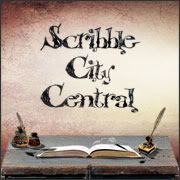Now that Mythic Fridays are finished, it's time to fire up the
Writing 101 Productions again and give you the benefit of my charmingly eccentric writer wisdom. Today it's the turn of the synopsis to go under the
101 spotlight. Trust me--you need to know this stuff.
So...why should I bother with a synopsis?
Quick answer: because agents and publishers are more time-poor than ever and they like a bit of shorthand as to what your book is about, who it's for and why they should even bother turning to page one.
In the old days (when life was sunny and fairies danced in the meadows...and editors said 'yes' every morning), I never wrote a synopsis. Now I do. What's more I slave over it every bit as hard as I do my books. I have news for you. The rainclouds are overhead, the fairies have gone back to Tir na n-Og...and children's book editors (and agents) say yes as often as geese lay golden eggs. A professional-looking synopsis is therefore essential.
Aarrgh! Scary! So how do I construct one?
Glad you asked. First of all, get all those romantic wishy-washy writer dreams out of the way--or mostly out of the way for the purposes of this exercise. I know you're the one with the imagination and the ability to write but publishing is a business, so:
- Synopsis Essential Rule #1: Think commercial. That first page is vital. You have to sell your story/novel/series, so make it jump out.
Before you even start, go and look at some bestselling book advertising and blurbs (a blurb is the stuff on the back or the inside of the book jacket. For those who didn't know that already). Ask yourself why the ad/blurb worked (or didn't). Why is your book so special that a publisher would cut their own throat rather than let it go to someone else (yes, you can dream about that--we all do)? In other words--what is its USP?
Right. You've done that. Have your USP firmly at the forefront of your mind. Now you're ready to begin.
First, head the page with:
- Book title and a strapline or very short paragraph to seize the editor's attention.
eg: The Hobbit
by JRR Tolkien
Wizards, dwarves, trolls, elves, wolves, spiders...and a fiery dragon. How will reluctant thief Bilbo survive his terrifying journey to Smaug's mountain?
Second up on the page is your:
Again, keep it brief and simple. Use bullet points. How many books will there be (if it's a series), or, if not, is there scope for a sequel. (Don't worry if it's a one off. One offs are fine.) Who is your target audience (and who will the book/s appeal to)? Sometimes it's helpful to be aware of the rival 'competition' here (ie if a particular readership group bought
that, they'll like
this). What age-group are you aiming for? Will the book need illustrations? How many words will it be? Is there a useful subject link to the National Curriculum or anywhere else? Is it fiction or non-fiction?
Third up is your:
You don't need to write a thesis. What you need is a concise and interesting summary of what the book is about (or the series. Or whatever. You get the idea). Where is the book set? This is really important if it's in any way magical or fantasy or otherworldy. Who is your main character, what kind of personality are they and what is their 'journey' (do NOT mention Tony Blair here or you will go straight to the rejection pile *
joke*)? If it's an adventure, you might like to write a little (a
little) about how it begins. If it's a series, you might like to say how many books you are planning--but DO NOT scare a publisher into fits by being unrealistic. If you are the new Robert Jordan and are planning a 13-book cycle which will last for your entire life, perhaps don't mention it here! If there's background that needs explaining here, do it BRIEFLY and SIMPLY. Remember overload=overkill. You can also work in a snappy line about your USP here (you do have one, remember?).
Fourth up is your:
Here, you'll need a fairly detailed plot outline (or, if it is a series, a plot outline of book one), plus a list of other important characters. Again, you're not writing the whole book here. The word is
S-U-M-M-A-R-Y. You might also want to give brief sketched plot outlines of any sequels or further storyline ideas here. BUT ONLY IF THEY ARE RELEVANT!
Last, but not least:
If you're unagented and submitting direct to a publisher (or if you're submitting to an agent with a view to being represented), for the Lord's sake tell them a bit about you. Again, keep it relevant and short, just a mini-CV, please. No one needs to know about the poetry you recited to the hens when you were ten.
Ok. So now you've written your synopsis. What next? Why, the even scarier business of submitting, of course. But that's a
101 for another day. For now just remember the wise words of meercat supremo
Aleksandr Orlov:
KEEP IT SIMPLES!
Links to all my other
Writing 101 Productions are right
HERE on one handy page. Have a browse, why don't you?


















6 comments:
Like your No 1: Think Commercial!
I am at present learning how to produce these things we never used to have to produce, and it's a full time job. Soon I'll be able to write a perfect synopsis, but what happens when the book wants to evolve into something else?
I never wrote synopses either for fiction, and have an agent who doesn't like them (that was lucky). But for the book I'm working on now I have to write a synopsis - eventually. So I'll be coming back to this again later... thank you, Lucy.
By the way, can we have your wise words on how to finish the damn book when all the time allocated to it has been frittered away by rabid dogs and the agent is drumming her fingers on the table and looking at her watch? Please?
Katherine--my books always evolve into something else. When I say a detailed synopsis for No 4, I mean telling the editor/agent what you know now. Things do change as one writes, as you know! But I usually know the framework, at least, and whether it's a happy or sad ending (even if I don't know exactly how I'll get there).
Stroppy--I'll have to give that some thought. Sounds like a winning idea for a blogpost!
I think the synopsis and query letter are the hardest to write. Now that I'm having a series published I'm doing synopsis/plot outlines for the next few books in the series. Thanks for the guidance.
Thanks for this Lucy.
I HATE writing synopses.
But recently my agent wanted summaries of book I am working on currently and anything I have in the wings.
And I may have to write some proposals soon so this could not have been more timely.
A writer friend once told me not to obsess so much over my outlines because they always change, often drastically, and the end result is frequently unrecognizable. Understanding this freed me up a lot.
I find I don't mind being told what to do by a meerkat either.
Jan--you're right, and I'll be talking about that next.
Jo--glad this has helped you. We aim to please! The meerkat may or may not return. Guess you don't have his adverts in the USA?
Post a Comment